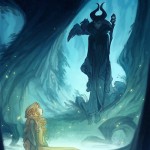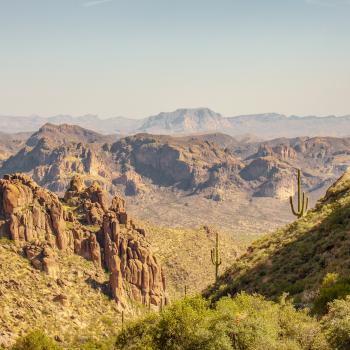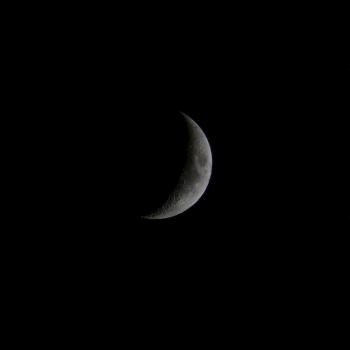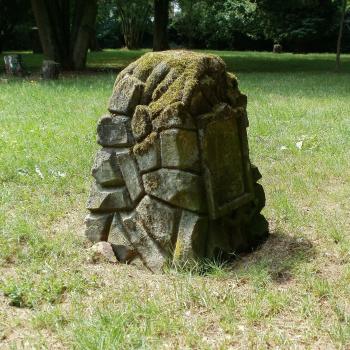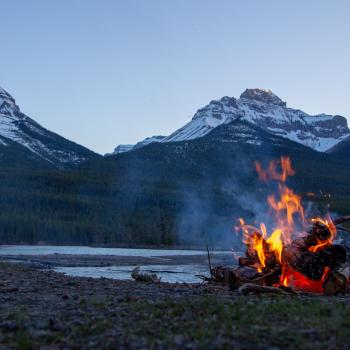For the next few weeks, we’ll be delving into the 30 Days of Devotion, a devotional writing project that helps us explore the gods we worship. We will do each of these for each of the Four Gods. If you are an Other Person or exploring the Four Gods, feel free to add your own comments – or join in!
If you have another topic you would like to see written on, you can email me ([email protected]) or message me on Facebook – but my writing will likely go to one of my other blogs, as we’re focusing on the Otherfaith at this blog for the time being.
Values & Culture
Our next prompt in the 30 Days asks us to consider how our god reflects the values and culture of their pantheon. Though we don’t use the word pantheon to refer to the Four Gods, instead preferring ‘god family’ or just the ‘Four Gods’, the Clarene certainly reflects her world. And she, in turn, shapes the religious culture of the Otherfaith.
We’ll focus on three specific values that the Clarene embodies: love, choice, and violence.
Love (Creative)
As I’ve mentioned repeatedly (and probably to the point of frustration, now), the Clarene builds her entire world on the basis of love. Each of the Four Gods embodies this in their own way. the Clarene brings forth creative, explosively enlightening love. Her love is what literally creates world, and it saves those she loves again and again. She creates life from her love of others and from the love she has for possibility, wherein creativity lies.
Her progenitor qualities are part of this creative love, this creation-of. She creates, endlessly, everywhere she goes. She leaves trails of herself along the way.
the Clarene’s embodiment of love is in contrast to the Dierne’s, which is destructive.
Choice
We haven’t delved into this so much lately, but choice is another huge part of the Clarene’s message. She extends her hand to us; she does not grab our hands. She still has laws – one either acknowledges her or one is not an Other Person – but she isn’t interested in capturing souls for eternity. the West, her land, houses permanent residents and travelers. And those who reside there must choose to do so; they cannot be forced.
This is why she is always offering. She offers fruits. She offers nuts. She offers us a chance to walk with her. She offers us her hand, and we can choose to accept it or not. Of course, if we change our mind, we are not forever stuck in our past choice (whether it was yes or no).
the Clarene embodies choice and consent. She instructs us on proper action, which involves choice. It involves taking responsibility for our choices as well, which is another lesson she gives to us. She kills off almost all the dragons, but she is able to address that horrible error and begin righting it. (An act which also requires admission of error, accepting responsibility, something we can’t undervalue.)
This value may seem strange, and indeed it should. We should not accept the plain statement of ‘violence’ simply or easily. the Clarene’s violence, especially, is not easy. I’ve described it in private writings (and a bit publicly) as cannibalism. She is the harvest god – and she harvests people and faeries and fruit and herself alike.
Violence
Violence is undoubtedly a large part of the myths and the gods. the Clarene is our gunpowder-mother, the one who creates a great deal of weapons as well as warriors and protectors. She also kills for food, and she also kills to kill. When it comes to the more antagonistic spirits, she even has a shoot-first ask-later policy. Shoot meaning both using guns or using her claws to rip flesh apart.
And all this is valued because it is part of her. Violence is often something our culture is unsure how to deal with, either sexualizing it or denying its existence or claiming that violence is deserved. The People certainly think violence has its place. Consensual violence (such as consensual S&M) can bring healing to the people who participate and may help them lead better lives than if they denied those impulses. Defensive violence, such as protecting someone from being injured by physically stopping someone else, is also understood to be of value. The violence inherent in eating is, well, inherent in living, so that has its own value in that it values what is being consumed. (If that value and respect is lacking – which it well might if we are abusing our food or destroying the planet in order to eat – we start getting into sticky and interesting territory.)
What about the other violence, however? The gods fight – the Dierne and Clarene especially. Even more than the Ophelia and Laetha, these two gods are violent, heated, passionate in their enmity. the Dierne more often ends up on the losing side, with snapped necks, bloody faces, black eyes, broken bones. How do we understand that rage in the Clarene’s bones that those who grow close to her will feel? She is covered in scars, and though she loves humans that doesn’t always mean she is treated well by them or that she treats them well.
We understand it as it is – mythic truth, metaphorical truth, and the truth of the god. She is wounded, and so she wounds. She engages with the Dierne for petty reasons and for great mythic and metaphorical reasons like the conflict of the heavens with the earth. She attacks out of fear or out of pleasure. She wounds for a thousand and one reasons, and I don’t think any of us will know all of them.
What I do know, though, from all these sights of the gods covered in blood and weapon-clad, all these gory visions, all these myths of blood:
We are not to imitate them.
Violence has value in our faith. The gods show us this. And our own violence, the violent monster in us, has value. This does not mean waging war. It does not mean aiming weapons at our ‘foes’ – perceived or real. Even the very necessary revolution/rebellion of the West in the myths is seen, ultimately, as a horrific act with horrific repercussions. The gods do not wish us to imitate them because such imitation leads to the horrors they themselves know.
Violence, as I have said, can be redemptive. It can be the way to a new world. Violence may be inherent in something, some part of our lives. The visions of the gods covered in blood may be ones of cleansing. But more often, they are ones of sorrow, of pain, of horror at was has been done.
Violence may bring us back into alignment when we have fallen out, but for the People, it is hardly the first option. As sacred as it may be, the gods know:
You can call it by any other name, but it’s still murder.
(And yet, violence is still a value, still something we hold. We hold to understand.)
Previous Posts
Basics: Four Gods (Redux) [Patheos]
Basics: Clarene (Origins)
Basics: Clarene (Myths)
Basics: Clarene (Family)
Basics: Clarene (Spirits)
Basics: Clarene (Names)
Basics: Clarene (Variations)
Basics: Clarene (Mistakes)
Basics: the Clarene (Offerings)
Basics: the Clarene (Holy Days)
Basics: the Clarene (Places)
Basics: the Clarene (Social Issues)
Basics: the Clarene (Worship)
Basics: the Clarene (Mundane)
*
Want to participate in the 30 Days of Devotion? Here’s a great link with all the prompts.
We are holding an Otherfaith discussion group every first Sunday of the month. Click here for more details, and send me a message or leave a comment if you would like to join!
New visitor and a little confused where to start? Head over to our About and Otherfaith pages, and then meander over to the beginning of our ‘basics‘ series. Any questions can be directed to my email [email protected].
[Want more of the blog? Follow through RSS and Facebook to receive consistent updates!]


